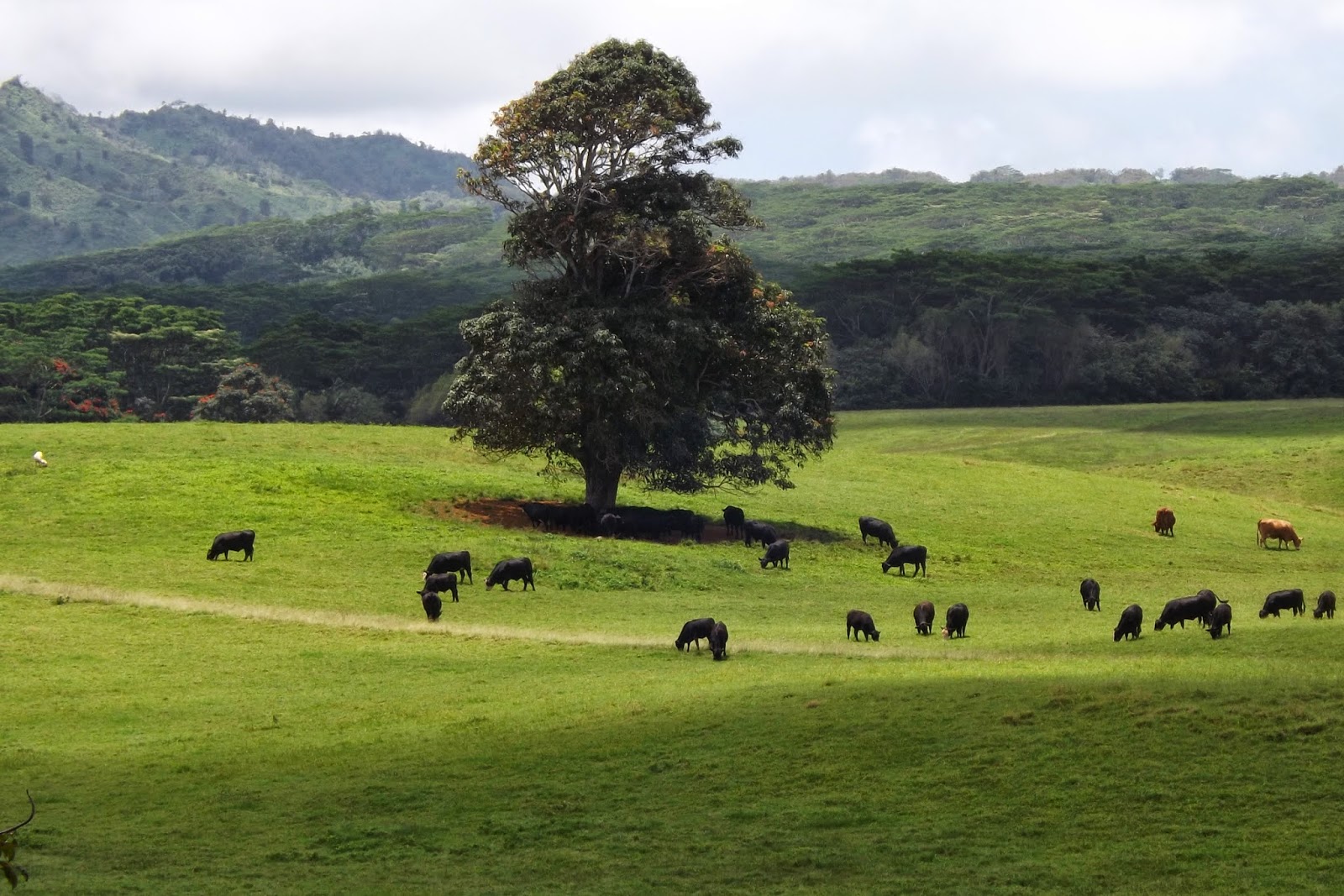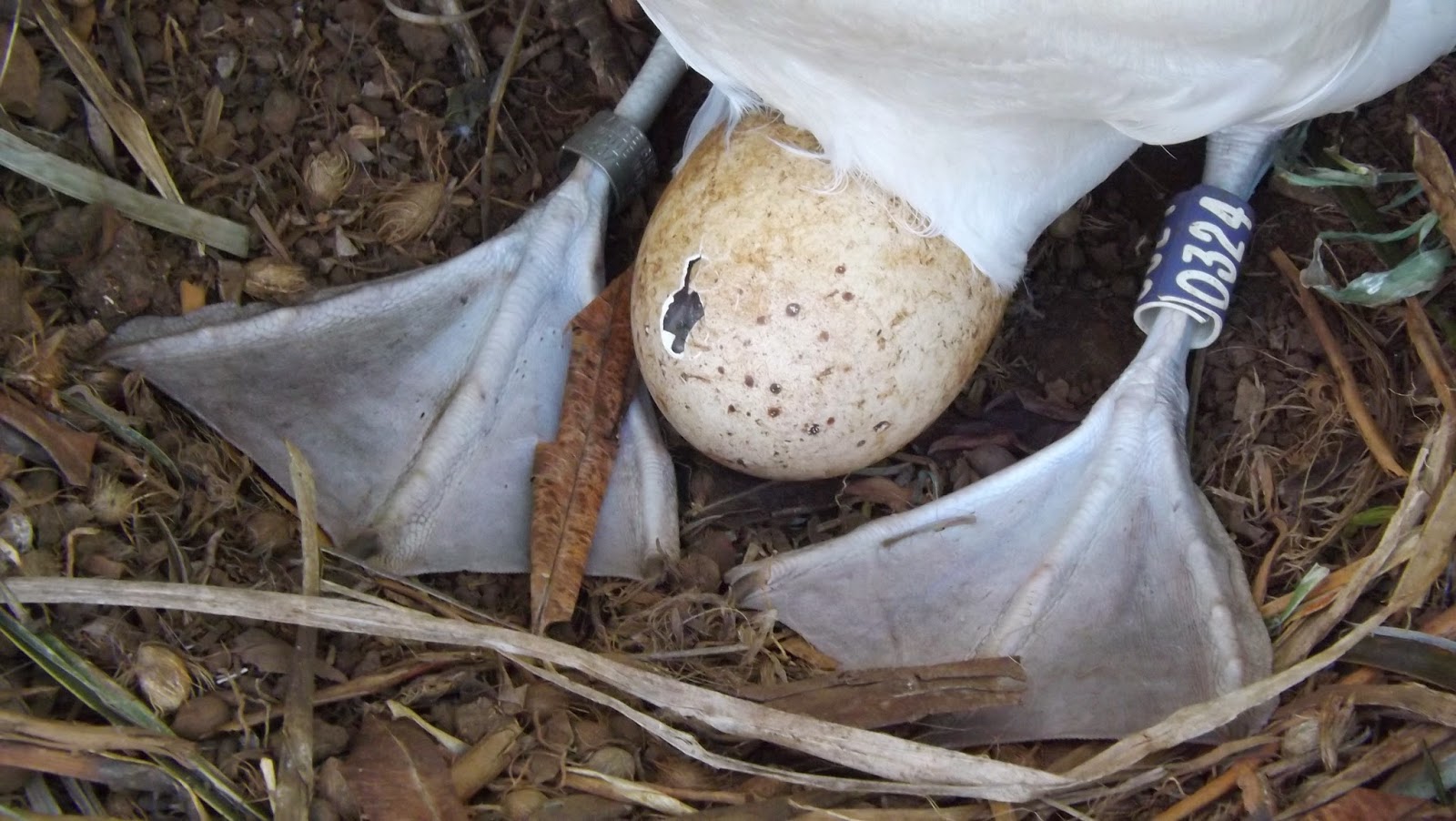Winter, Winter, Winter
Waves, whales, chicks, Chinese New Year, and more
WAVES
In
late January we had high waves predicted but they weren’t the 60 footers the
tow-in surfers were hoping for. High
tides at about 6am caused the flood gates to open at the canoe club. The boats were high enough – but the launch for
the club and Hanalei’s launch together created a new river. I only saw the aftermath.
Hanalei River is to the left. The Hanalei Bay launch is left and this side of the gate.
The other side of gate and to left is the club launch.
The river made a new path connecting the launch sites. See below.
The river is rarely this high, the main launch totally broken now
The club launch normally has carpet going down to the water
so when the canoes are carried down it is a little easier on the feet.
The carpet has been shoved up onto the grassy area (what grass?) by the river rushing through.
The river made its own path - through and through
Debris line shows how high it came
I
walked on over to the pier just to see what Hanalei Bay
Waves in Hanalei Bay
Not a typical sight
Keep in mind this is 4-5 hours after high tide
Even though I turned my hat backward at the end of the pier, a gust peeled it right off
Gallantry lives, this young fellow managed to catch it for me between sets!
So, speaking of canoes and water, Gil's team has won every race they've entered this year. The winter long distance races are about 12 miles. In the first one of the season, the "old" guys came in first overall! There are only 3 categories right now, under 40, over 40, and over 50. No one liked being beaten by the winners that were actually all over 60. They felt challenged!
First place over 50,
First place overall
Meanwhile back at the ranch . . .
I started a new job in January (one day a week), paying bills at Jurassic Kahili
Ranch in Kilauea (JKR). I had worked for
the company that built the barn a number of years ago. Kauai ’s
grass fed beef is grown here – they were grazing over the hill and out of sight
when I took this shot. It is not unusual
to see a dozen nene or a couple koloa ducks on the property as well.
Cattle ranch in Kilauea called Jurassic Kahili Ranch or JKR
Kilauea Point Wildlife Refuge
One
morning after a meeting at the wildlife refuge, I had to wander out
to the point to check out the birds riding on gusting winds.
Red-footed Booby cruising, note blue bill
Both of these are males in full breeding colors
They are on assignment to collect nesting material for their respective female mates
This one has selected a twig he is have trouble dislodging
Once he gets it back to the nest the female could very well reject it and send him off again
The boobies aren't the only ones out and about
Albatrosses seem to really enjoy the rough winds - more like their Alaskan conditions
NENE, or Hawaiian geese
This was a group of two adults (one out of frame) and two goslings of different ages
One or the other youngster was adopted, a common behavior for nene.
The bigger one is already losing the down covering his/her new feathers
Chinese New Year
We met a friend in Kapa'a for an early dinner because we just hadn't gotten together for a long time. We knew it was Chinese New Year and sure enough a dragon costume and instruments were on the grass, ready for a walk. Too cute.
An auspicious start - January 31, 2014 - Year of the Wood Horse
From our table at Beachwalk Restaurant - Kapa'a
Happy New Year!
Whale Count / Ocean Count
The
whale count in January was quite relaxing with a few dramatic behavior
displays. The count in February was
lovely as well. Since my regular partner
is out for the season, I met new people.
The fact that we are all willing to deliberately stare at the ocean for
four hours gives us something in common.
Most of the folks are quite interesting.
We trade off after each 30 minute segment – one scanning and one recording on a chart. Of course with a large arena, there can be several individual whales or small groups (not pods) with varying behaviors at the same time so we get pretty excited when they are all going off. Chatting is reserved for the moments when the big guys are out of our visual range or have gone under for a bit like here.
We trade off after each 30 minute segment – one scanning and one recording on a chart. Of course with a large arena, there can be several individual whales or small groups (not pods) with varying behaviors at the same time so we get pretty excited when they are all going off. Chatting is reserved for the moments when the big guys are out of our visual range or have gone under for a bit like here.
At the February count the highlight was a female that
continuously slapped her tail (and sometimes the back third of her whole body)
67 times! As she did that (and we are
assuming it was a female because there was a calf close by in the water), it
appeared as if she were teaching the move.
The young one would stick its nose up, its pectoral fin up, and even
once managed to slap its tail, too! Why
do they need to know this behavior? We
can speculate – or make it up – humans do not really know a lot about the world
they live in. . .
Here are two of the 67 tail slaps
See the baby at right, trying a pect slap here
WHAP coming, not sure what Jr. is trying this time
Superbowl Sunday
Some of us are easily distracted from football . . . especially when we were watching from a friend's spectacular home.
TV or not TV?
On the deck - to the left
On the deck, to the right
Mary Frances (MFL) making taco salad for us
Her team was losing so she had to pick up her spirits in the kitchen
I don't remember much about the game. When I wasn't watching the water I was out watching the albatross that had their own team effort happening. These are youngsters practicing the art of mate attraction but will not mate this year. They are just refining their moves.
Sky moo on the left
Beak clacking and tippy toes on the right
(they weren't standing still and posing for me)
Another moo on the left and some head wagging and wing display on the right
Encouragement, critique?
Wagging on left with some wing display, some bill clacking on right
Likely a male on the right with the larger chest, but no one puts money on it without DNA
Ah, finally his chance to sky moo, on tippy toes to an appreciative audience
While all this commotion is going on in the cul de sac, there is a mated pair right in Mary Frances' yard that already has a new chick.
Elsewhere on the island, we have other creatures minding their own business.
This was Dad (K233) taking his turn incubating the egg last week
it takes 65 days from when it is laid.
it takes 65 days from when it is laid.
Parents take turns sitting and going to sea for sustenance,
sometimes travelling several thousand miles
This is a great location because the chick will be able to fledge
right out over the cliff and on out to the ocean.
Mom, or 0324, was sitting when the chick pipped the shell
They need to get themselves out in the next 36-48 hours
The new chick is just egg size!
Mom and CJ
(MFL named the chick for guests, Connie and Joe)
They adjusted their position and CJ's head is now out from under
Dad (K233) and CJ
Three weeks later, the parents don't need to sit on the big baby - he/she can thermo- regulate now and adults can both leave at once to get enough food for themselves and bring back some rich, stinky fish oil for the growing youngster.
Dad (K233) and CJ
Laysan Albatross or Moli (mow-lee)
Three weeks old and quite adorable
Elsewhere on the island, we have other creatures minding their own business.
Anyone that has been here knows we have lots of chickens on Kauai. They aren't usuallly the most charming of birds with their wake up calls, cackling, and habits of disregarding their young. This hen however earned Gil's nomination for mother of the year. She had ten little ball bearing fuzz balls day one and there are still ten now that they are half grown. Never mind that it increases the population by quite a lot, she was just very smart and aware all the time - high quality attributes.
We've had phenomenal amounts of rain and cold this winter and during one rainy moment I looked out and saw her teaching roosting lessons. I was impressed and so was the rooster who joined in - bouncing on dormant plumeria branches a few inches off the ground.
Roosting lessons
Make no mistake, we do not feed them
They do like the area surrounding our compost bin (far right)









































